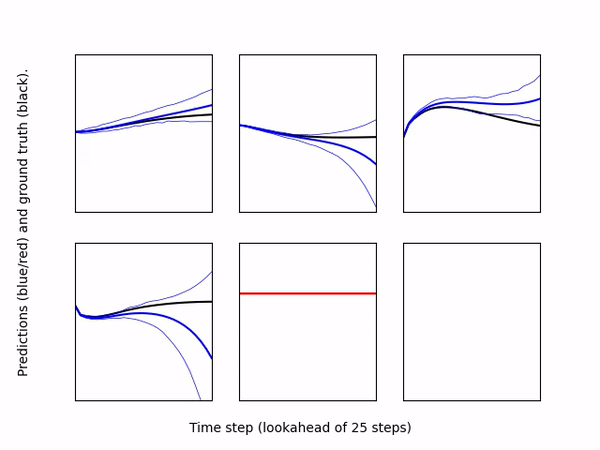Learning Accurate Long-term Dynamics for Model-based Reinforcement Learning
Accurately predicting the dynamics of robotic systems is crucial for model-based control and reinforcement learning. The most common way to estimate dynamics is by fitting a one-step ahead prediction model and using it to recursively propagate the predicted state distribution over long horizons. Unfortunately, this approach is known to compound even small prediction errors, making long-term predictions inaccurate. In this paper, we propose a new parametrization to supervised learning on state-action data to stably predict at longer horizons -- that we call a trajectory-based model. This trajectory-based model takes an initial state, a future time index, and control parameters as inputs, and directly predicts the state at the future time index. Experimental results in simulated and real-world robotic tasks show that trajectory-based models yield significantly more accurate long term predictions, improved sample efficiency, and the ability to predict task reward. With these improved prediction properties, we conclude with a demonstration of methods for using the trajectory-based model for control.
PDF Abstract

